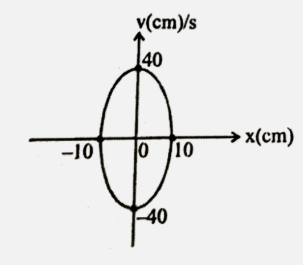The maximum velocity of a particle executing simple harmonic motion is v. If the amplitude is doubled and the time period of oscillation decreased to 1/3 of its original value the maximum velocity becomes
18v
12v
6v
3v
The correct Answer is:C
Step by step video, text & image solution for The maximum velocity of a particle executing simple harmonic motion is v. If the amplitude is doubled and the time period of oscillation decreased to 1/3 of its original value the maximum velocity becomes by Physics experts to help you in doubts & scoring excellent marks in Class 11 exams.
Updated on:21/07/2023Topper's Solved these Questions
- PRACTICE PAPERSBook:NCERT FINGERTIPSChapter:PRACTICE PAPERSExercise:Practice Paper 2
Explore 50 Videos
- PHYSICAL WORLDBook:NCERT FINGERTIPSChapter:PHYSICAL WORLDExercise:Assertion And Reason
Explore 10 Videos
- SYSTEM OF PARTICLES AND ROTATIONAL MOTIONSBook:NCERT FINGERTIPSChapter:SYSTEM OF PARTICLES AND ROTATIONAL MOTIONSExercise:Assertion And Reason
Explore 15 Videos
Similar Questions
The plot of velocity (v) versus displacement (x) of a particle executing simple harmonic motion is shown in figure. The time period of oscillation of particle is :-

View SolutionFor a particle executing simple harmonic motion, the amplitude is A and time period is T. The maximum speed will be
View Solution
Knowledge Check
The velocity of a particle executing simple harmonic motion is
Aω2√A2+x2Bω√A2−x2Cω√A2+x2Dω2√A2−x2The maximum velocity of a particle executing S.H.M. is u. If the amplitude is doubled and the time period of oscillation decreases to (1/3) of its original value, then the maximum velocity will be
A18 uB6 uC12 uD3 uThe maximum velocity a particle, executing simple harmonic motion with an amplitude 7 mm, 4.4 m//s. The period of oscillation is.
A(a) 0.01sB(b) 10sC(c ) 0.1sD(d) 100s
The maximum velocity of a particle executing SHM is v. If its amplitude of oscillation is doubled and its time period is made half of its initial value, the maximum velocity of it will be
View SolutionA particle executing simple harmonic motion with time period T. the time period with which its kinetic energy oscillates is
View SolutionMaximum speed of a particle in simple harmonic motion is vmax. Then average speed of this particle in one time period is equal to
View SolutionThe acceleration displacement graph of a particle executing simple harmonic motion is shown in figure. The time period of simple harmonic motion is
View SolutionThe ratio of the maximum velocity and maximum displacement of a particle executing simple harmonic motion is equal to
View Solution

